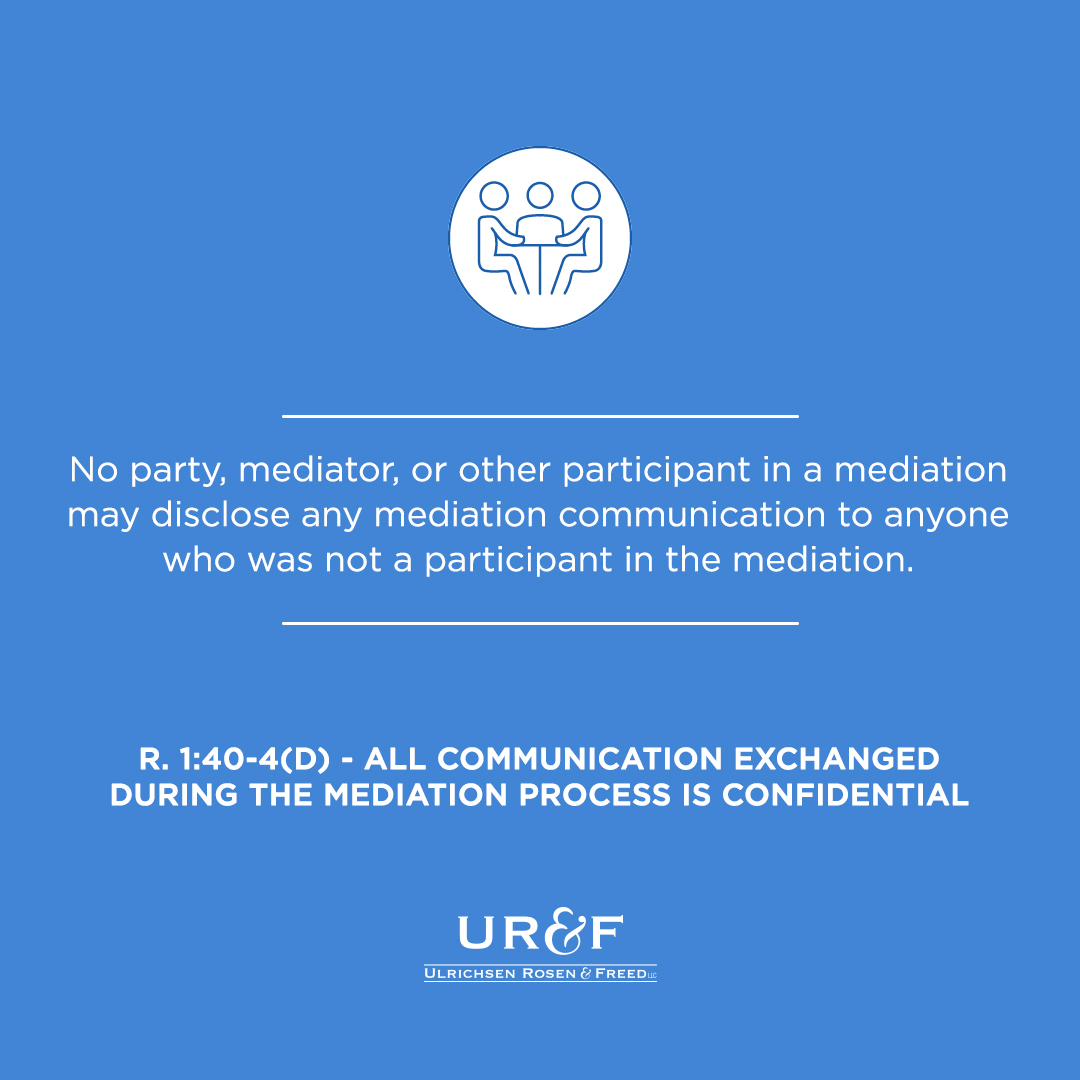Explanation of New Jersey Court Rule 1:40-4(c) and New Jersey Court Rule 1:40-4(d).
All communication exchanged during mediation is confidential. New Jersey Court Rule 1:40(d) addresses confidentiality and specifically states, “no party, mediator, or other participant in a mediation may disclose any mediation communication to anyone who was not a participant in the mediation.” R. 1:40-(d).
Moreover, New Jersey Court Rule 1:40(c) creates an evidentiary privilege for communications and information exchanged during the mediation process. An evidentiary privilege means that any communication or information shared during mediation including settlement positions cannot be presented or shared with a court or judge. New Jersey Court Rule 1:40(c) specifically states, “A mediation communication is not subject to discovery or admissible in evidence in any subsequent proceeding except as provided by the New Jersey Uniform Mediation Act, N.J.S.A. 2A:23C-1 to -13.”
The purpose of making mediation confidential is to encourage settlement and full disclosure of information. By making mediation confidential and creating an evidentiary privilege, the New Jersey Court Rules attempt to remove the fear that the communications will be used against a party in a subsequent court proceeding or litigation.
A full and complete version of R. 1:40-4(d) and R. 1:40-4(d) is cited below:
(d) Confidentiality. Unless the participants in a mediation agree otherwise or to the extent disclosure is permitted by this rule, no party, mediator, or other participant in a mediation may disclose any mediation communication to anyone who was not a participant in the mediation. A mediator may disclose a mediation communication to prevent harm to others to the extent such mediation communication would be admissible in a court proceeding. A mediator has the duty to disclose to a proper authority information obtained at a mediation session if required by law or if the mediator has a reasonable belief that such disclosure will prevent a participant from committing a criminal or illegal act likely to result in death or serious bodily harm. No mediator may appear as counsel for any person in the same or any related matter. A lawyer representing a client at a mediation session shall be governed by the provisions of RPC 1.6.
- 1:40-4(d) [emphasis added].
(c) Evidentiary Privilege. A mediation communication is not subject to discovery or admissible in evidence in any subsequent proceeding except as provided by the New Jersey Uniform Mediation Act, N.J.S.A. 2A:23C-1 to -13. A party may, however, establish the substance of the mediation communication in any such proceeding by independent evidence.
- 1:40-4(c) [emphasis added].
For questions regarding confidentiality, mediation or any other family law related issue, please contact the attorneys of Ulrichsen Rosen & Freed LLC. Our firm is focused exclusively on the practice of family law and serves clients throughout New Jersey including clients residing in Mercer County, Somerset County, Hunterdon County, Burlington County and Middlesex County.
Additionally, each partner at Ulrichsen Rosen & Freed LLC is qualified to serve as an independent mediator under New Jersey Court Rule 1:40.


